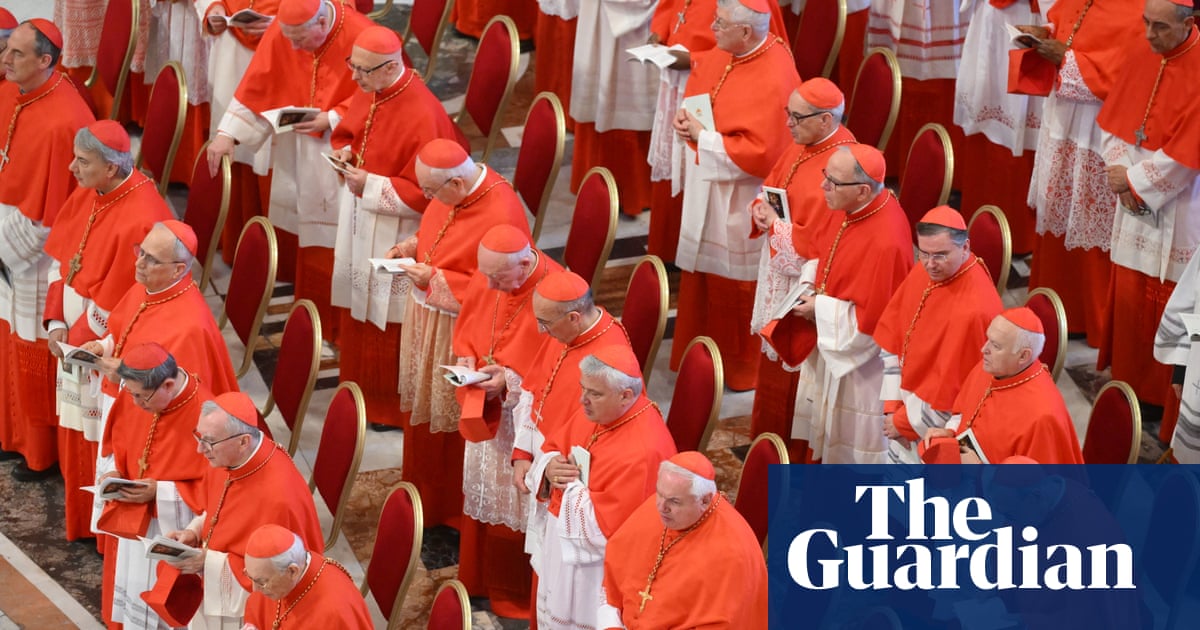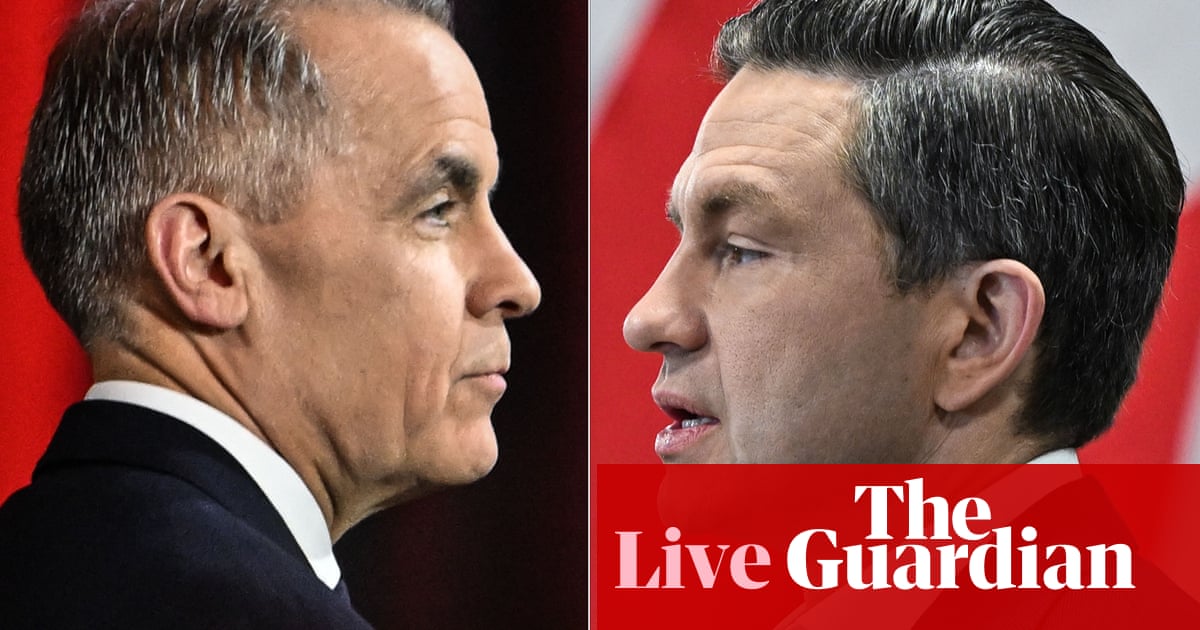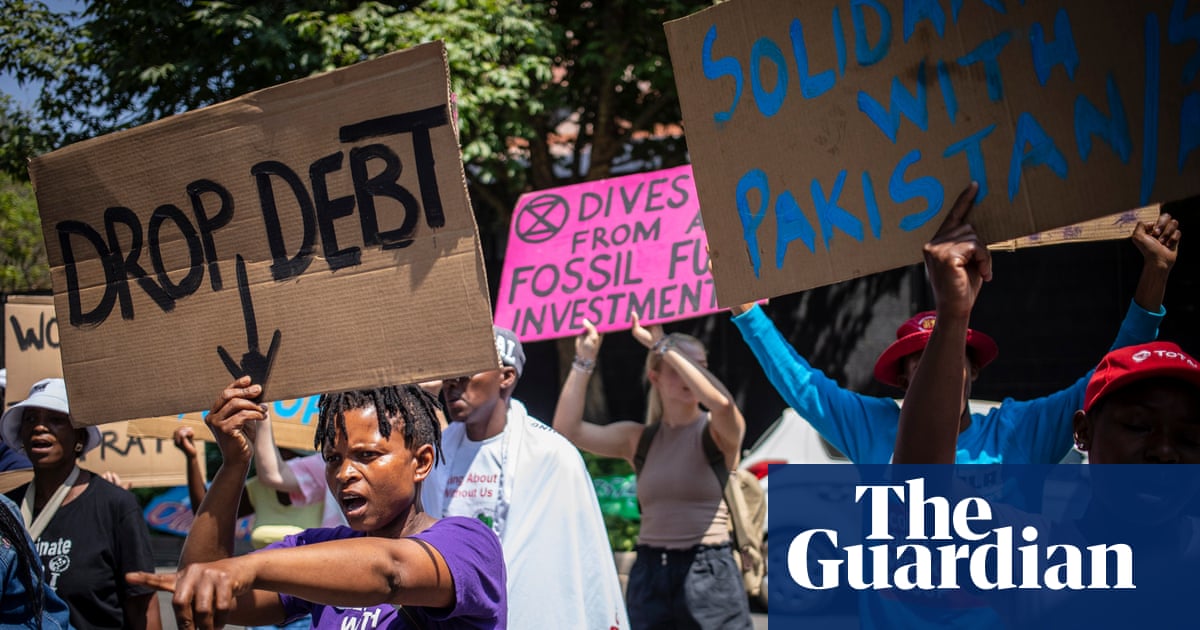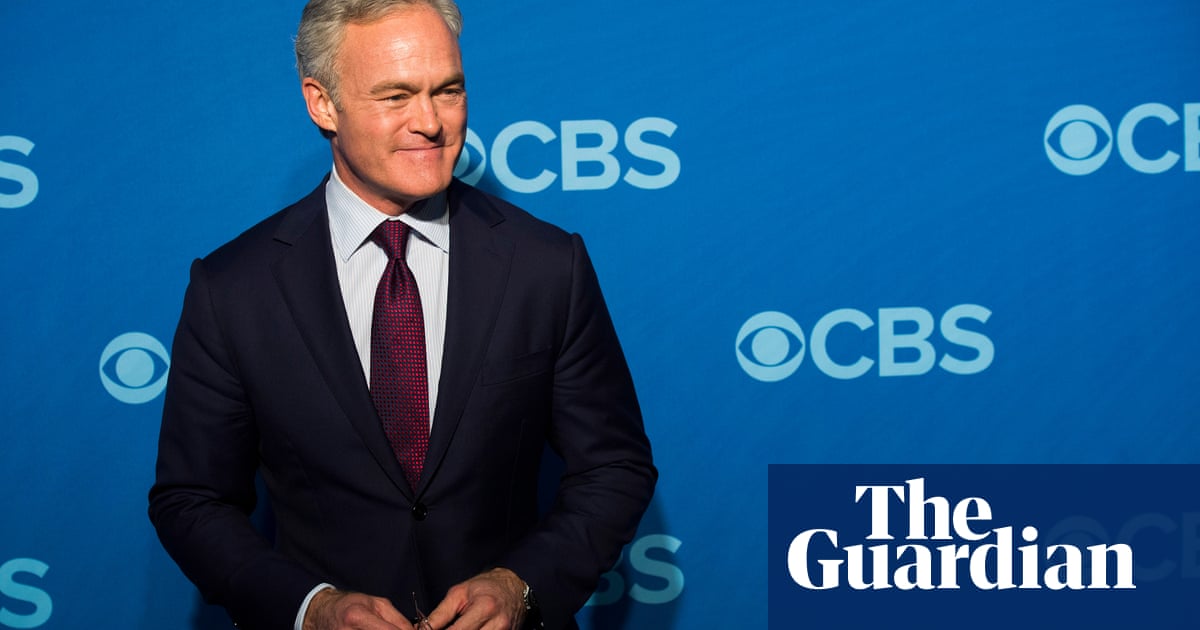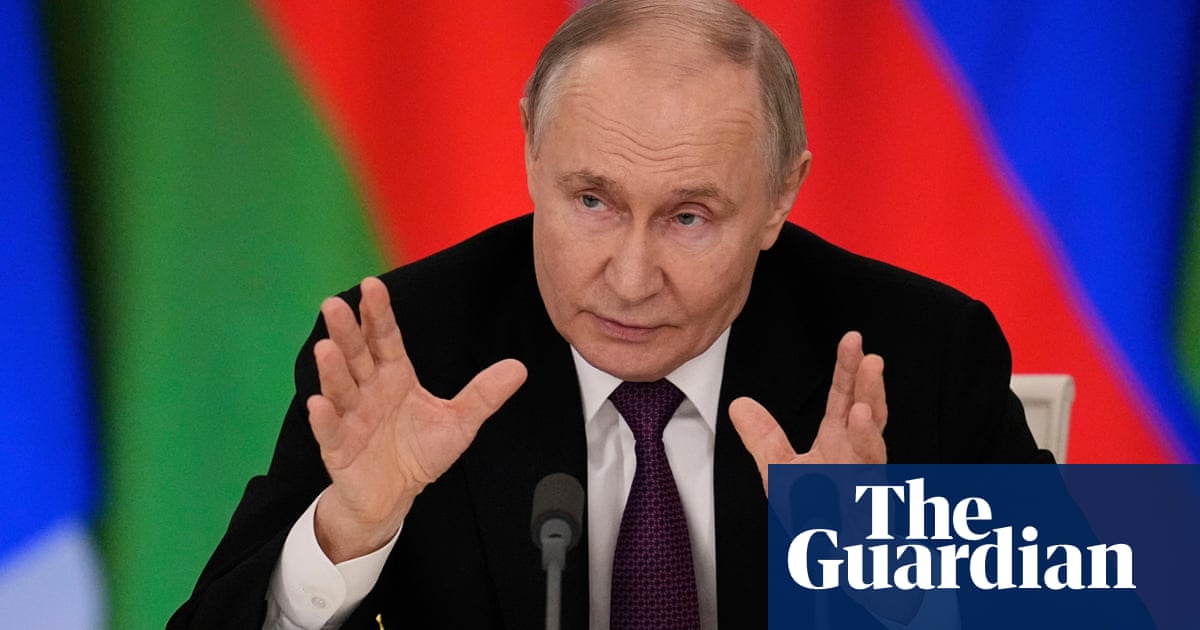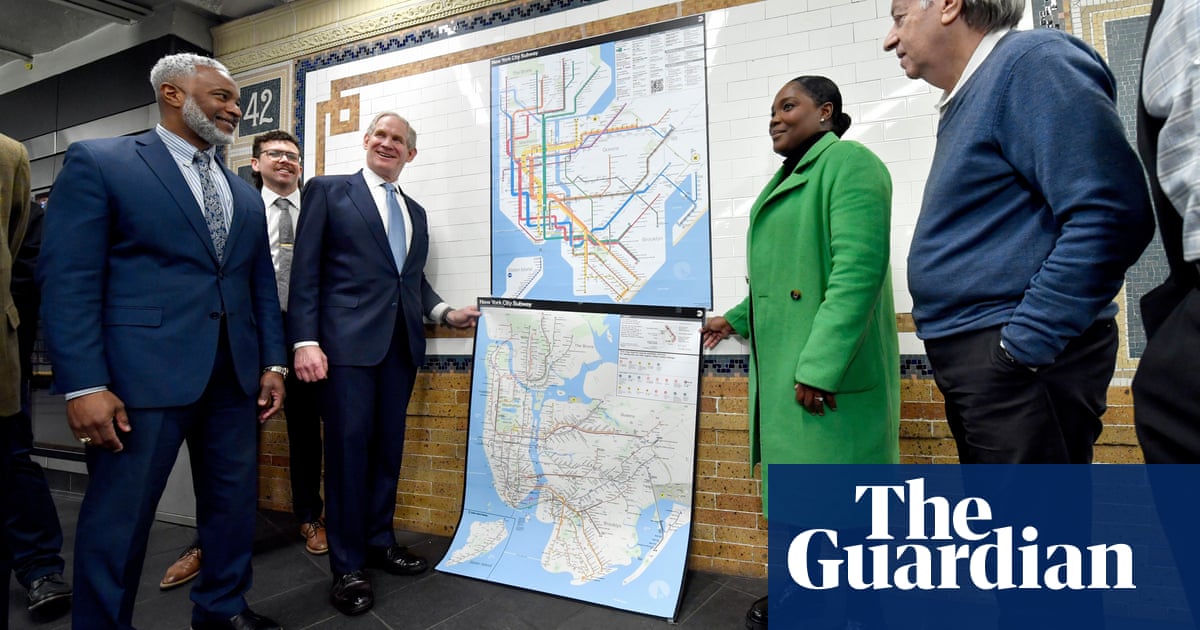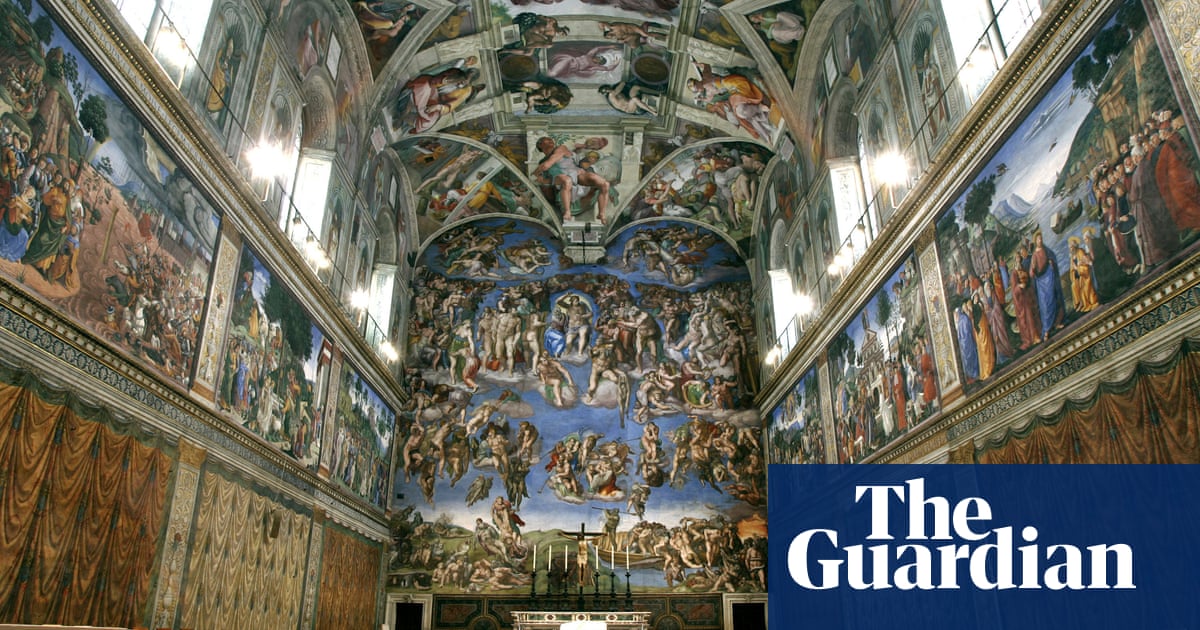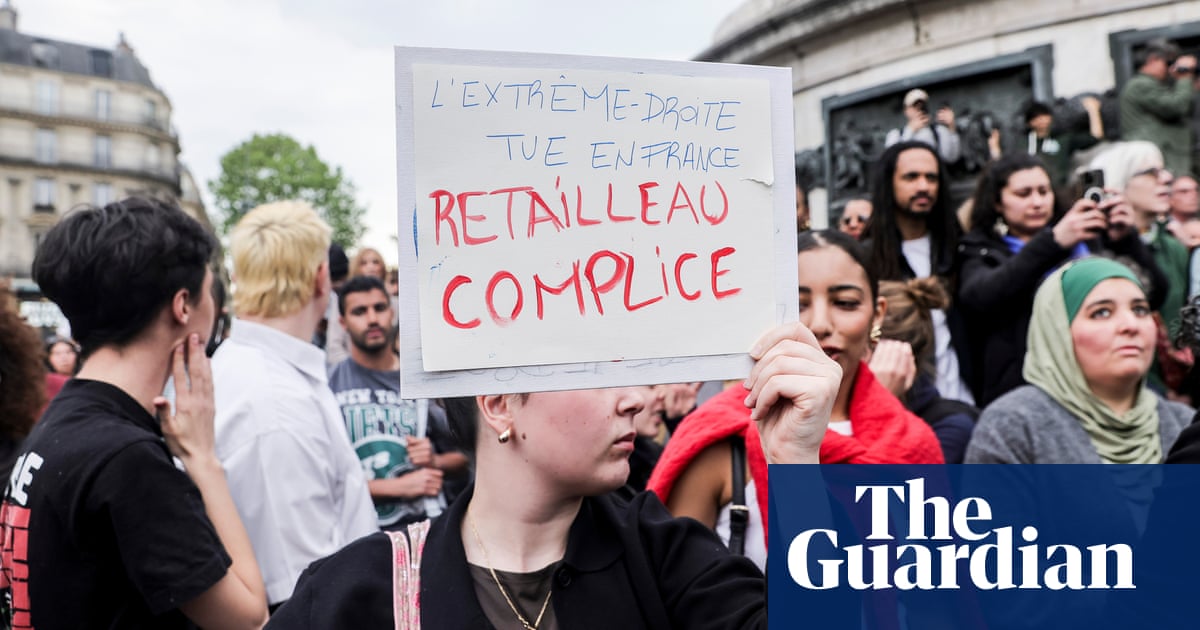When asked about Donald Trump’s Easter morning post wishing a happy holiday to “the Radical Left Lunatics … fighting and scheming so hard to bring Murderers, Drug Lords, Dangerous Prisoners” to the United States, Jackson Lahmeyer, an Oklahoma evangelical Christian pastor, said: “Isn’t it terrible that they are wanting to do that?”
Lahmeyer, the founder of the Pastors for Trump organization, was not bothered by Trump’s extreme and divisive message on the Christian religious holiday, because, he said: “You cannot unify with evil.”
Lahmeyer’s attitude appears typical of many white evangelical leaders who still strongly support Trump despite what – for many – is violent, extremist-laden language that many would see as unsuitable for any religious occasion, let alone one intimately connected to rebirth, forgiveness and peace.
But those leaders in the US say Trump – unlike some past Republican presidents – has followed through on campaign promises concerning core issues such as abortion, immigration, the location of the US embassy in Israel and, more generally, his pledge to “bring back Christianity”.
More good things could be in store for that demographic because in a second Easter post on his platform Truth Social, Trump said he would make America “more religious, than it has ever been before!!!”
“He has moved the needle for the Christian agenda unlike anyone else, especially in modern times,” said Lahmeyer, who attended an Easter dinner at the White House. “As a pastor, obviously, that is music to my ears.”
White evangelical voters also turned out in large numbers for George W Bush when he ran for president in 2000 and 2004, but they were disappointed because they felt he did not do enough to oppose same-sex marriage or to ban abortion. Bush also, when compared to Trump, had a more liberal immigration policy, including supporting providing undocumented immigrants the chance to become citizens, according to John Fea, a history professor at Messiah College in Mechanicsburg, Pennsylvania, and the author of Believe Me: The Evangelical Road to Donald Trump.
“Bush wasn’t willing to give them everything that they wanted to be elected,” Fea said. “Trump will do what evangelicals tell him to do for the most part, in order to maintain power.”
In addition to appointing supreme court justices who ruled that there is no constitutional right to abortion, Trump also moved the embassy from Tel Aviv to Jerusalem, which previous presidents had said they supported but did not implement.
“They all said it to get votes. They never did it. The president did it,” said Lahmeyer, who ran for Senate and lost in 2022.
During this term, Trump has signed executive orders to establish a faith office and a taskforce to address “anti-Christian bias” in the federal government.
To evangelical leaders, that emphasis on Christian values stands in contrast to how they perceive the Biden administration’s actions, including in 2024 declaring 31 March Transgender Day of Visibility, the date when it had been celebrated since its creation in 2009, but last year fell – entirely coincidentally – on Easter Sunday.
But in a world where conspiracy theories and misinformation is rife, that sparked anger among rightwing Christians.
“Easter was barely mentioned,” said Brad Sherman, an Iowa pastor and Republican now running for governor. “In fact, I think it was more about some kind of LGBTQ awareness day or something, if I remember correctly, so I just feel like President Trump is standing up for Christian values.”
In actual fact, Biden continued the tradition of the annual White House Easter egg roll and in a statement said: “As we gather with loved ones, we remember Jesus’s sacrifice … with wars and conflict taking a toll on innocent lives around the world, we renew our commitment to work for peace, security, and dignity for all people.”
This year, Trump held an Easter prayer service and dinner with Lahmeyer; prominent pastors such as Franklin Graham and Robert Jeffress; and his personal pastor, Paula White-Cain, who now leads the White House faith office, among others.
“[Trump] preached the gospel to us pastors, and I thought that was amazing,” Lahmeyer said.
While most white evangelicals support Trump, there are Christian leaders, including evangelicals, who have criticized some of the president’s policy decisions, especially to eliminate 83% of US Agency for International Development (USAID) programs. Among the initiatives affected was the President’s Emergency Plan for Aids Relief (Pepfar), which has saved millions of lives from HIV/Aids and was popular with evangelicals.
“We see it as really overarchingly a pro-life program in that it promotes the life-saving need for HIV treatment,” Emily Chambers Sharpe, the health director at World Relief, the humanitarian arm of the National Association of Evangelicals, told the Guardian.
But the person behind many of the federal government cuts, Elon Musk, head of the so-called “department of government efficiency”, called USAID a “criminal organization” and said that it was “time for it to die”.
Adam Russell Taylor, the president of Sojourners, a Christian social justice group, said such remarks remind him of “the prophet Isaiah, who forewarned us that woe to you that call evil, good, and good, evil”.
The administration is “making these allegations that aren’t backed up by evidence or proof. And they disparage this whole body of work that has created such goodwill around the world and is so aligned with our Christian values,” Russell Taylor said.
But many American evangelicals continue to support Trump despite such cuts, because concern for the poor “always takes a back seat in evangelical politics to abortion [and] control of the supreme court, which will allow them to have the religious freedom that they want”, said Fea, the history professor.
Tony Suárez, the founder of Revivalmakers Ministries, an evangelical group, said he supports Trump because he is trying to strengthen border security and is restoring “respect for conservative, Judeo-Christian values”.
Once the country secures the border and removes “the criminal element”, Suárez, who is also executive vice-president of the National Hispanic Christian Leadership Conference, said he would like to see a pathway to at least legal permanent residency for undocumented immigrants. He thinks that based on some of his comments during his first term, Trump would support that too.
But Trump also wants to end birthright citizenship for the children of undocumented immigrants and foreign residents, a guarantee under the 14th amendment.
Asked for his position on this, Suárez said that is “a little bit above me to understand what it is specifically that they are arguing”.
And on cuts to foreign aid programs, Suárez said he views them “as difficult decisions that any organization, denomination, reformation, might have to take, and they will never be popular”.
Suárez joked that the only thing he disagrees with Trump on is him saying that “you may even get tired of winning”.
“I’m not tired,” Suárez said. “I’m looking for the next win.”

 3 hours ago
5
3 hours ago
5


